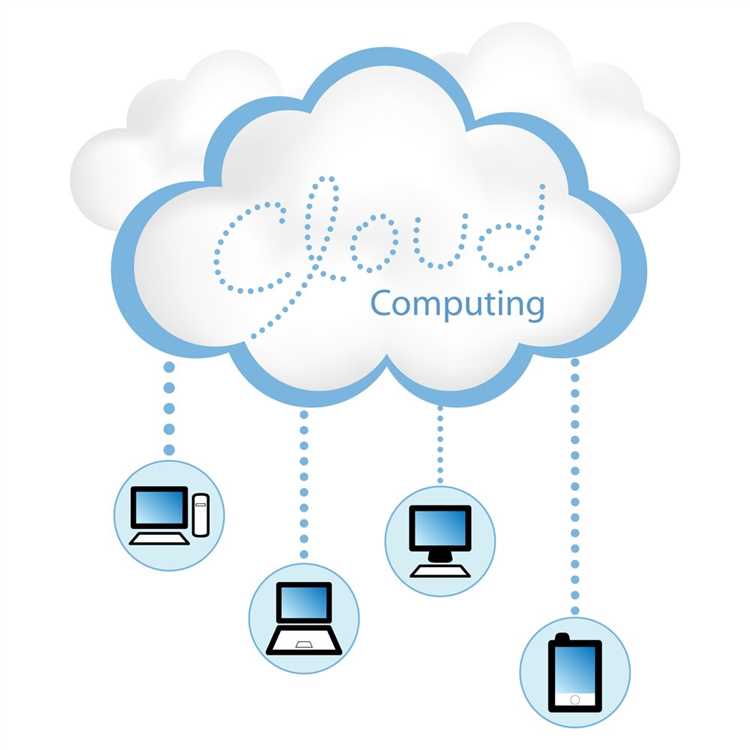Unleashing Business Potential through Cloud Computing: Innovation, Flexibility, and Efficiency
Cloud computing offers businesses a unique opportunity to gain a competitive edge in today’s rapidly evolving world. With the power of cloud computing, organizations can unlock unprecedented levels of productivity and flexibility. By migrating their data and services to the cloud, adopting a microservices architecture, and leveraging virtualization technologies, businesses can establish a robust and scalable IT infrastructure tailored to their specific needs.
One of the key advantages of cloud computing lies in its ability to transform traditional data centers into modern, virtualized environments. This transition enables companies to optimize data management, enhance technology utilization, and streamline server operations. The inherent scalability of cloud computing allows businesses to effortlessly adapt to changing demands, ensuring superior performance and increased availability.
Artificial intelligence (AI) and analytics play a pivotal role in cloud computing, providing organizations with actionable insights and improving decision-making processes. The cloud’s flexibility empowers machine learning algorithms to efficiently analyze vast amounts of data, unveiling valuable information. This empowers businesses to make data-driven decisions that foster growth and drive innovation.
The cloud computing landscape offers a wide range of solutions tailored to meet the unique needs of every business. Whether a company requires a private cloud for heightened security and control or a public cloud for enhanced flexibility and cost-efficiency, there are cloud services available to fulfill specific requirements. Additionally, the integration of the Internet of Things (IoT) with the cloud enables businesses to effectively manage and analyze data from interconnected devices, unlocking new possibilities and avenues for innovation.
Furthermore, the cloud provides enhanced security and transparency through the utilization of identity and blockchain technologies. By containerizing services, businesses can achieve efficient application deployment and management, improving resource utilization and minimizing downtime. Managed cloud services allow companies to focus on their core competencies while benefiting from a highly efficient and secure infrastructure.
Cloud computing revolutionizes businesses by introducing unparalleled efficiency and automation, resulting in reduced operational costs and increased opportunities for innovation. The usage-based payment model and adaptable subscription options provide optimal cost management and scalability. Cloud computing also enhances performance by reducing latency, enabling businesses to achieve exceptional speed and responsiveness.
The diverse cloud marketplace offers a plethora of services and solutions, ensuring that businesses can find the perfect fit for their unique requirements. With the inherent flexibility and resilience of cloud computing, organizations can maintain high availability, even during peak periods. Service Level Agreements (SLAs) provide businesses with the assurance of reliability and performance for their cloud services.
The combination of DevOps practices and cloud computing significantly improves collaboration, control, and flexibility. This enables seamless application implementation, accelerating time-to-market and allowing businesses to swiftly respond to market demands. By harnessing the power of cloud computing, businesses can unleash the full potential of technology to drive innovation and achieve sustainable long-term growth. Embracing cloud computing is no longer a choice but a strategic imperative for businesses in today’s digital era.
Cloud Native Applications
Virtualization and containerization technologies have completely transformed the development, deployment, and management of applications in today’s digital era. The emergence of cloud native applications has capitalized on these technologies to offer improved security, performance, and agility.
The paramount concern with cloud native applications is security. Cutting-edge artificial intelligence algorithms are deployed to identify and thwart any security threats, ensuring the perpetual protection of your data and services.
One noteworthy advantage of cloud native applications is the potential for substantial cost savings. By utilizing containerization, you can optimize resource utilization, thereby reducing the necessity for additional servers and minimizing infrastructure expenses.
Containerization also allows for easy scalability of your applications based on demand. With the use of automated orchestration tools, you can efficiently manage the deployment and scaling of your containerized applications, ensuring optimal performance and high availability.
Cloud-native applications simplify the process of migrating your existing on-premises applications to the cloud. Managed container services offer seamless integration and provide features such as identity management, data storage, load balancing, and control over network bandwidth.
By utilizing cloud-native technology, you can take advantage of the extensive marketplace of pre-built services and solutions. This allows you to focus on developing your applications instead of managing infrastructure, ultimately saving you time and effort.
Privacy and compliance are vital considerations when it comes to cloud-native applications. By utilizing private cloud options and services that are compliant, you can ensure that your data meets all regulatory requirements while still enjoying the benefits of cloud computing.
Cloud-native applications allow you to harness the power of big data. With scalable infrastructure and advanced analytics tools at your disposal, you can process large volumes of data quickly and efficiently, gaining valuable insights to inform your business decisions.
In summary, cloud-native applications provide the agility, reliability, and scalability that are essential in today’s rapidly changing digital landscape. By subscribing to cloud services, you can concentrate on developing innovative applications and leave the management of infrastructure to the experts.
Cloud Storage and Backup
Scaling and Technological Advancements
Cloud-based storage and backup solutions are uniquely equipped to handle the increasing need for data storage by employing cutting-edge technology and offering scalability. By seamlessly adjusting storage capacity to align with their business requirements, companies can effortlessly expand their storage capabilities without having to invest in additional hardware or infrastructure.
Reliability and SLA
Cloud storage and backup solutions provide secure data storage and come with service level agreements (SLAs) that ensure excellent availability and minimal interruption. This guarantees constant access to vital data and safeguards against the possibility of data loss or disruption to business activities.
Load Balancing and Platform
Load balancing techniques are used in cloud storage and backup solutions to evenly distribute data across numerous servers. This ensures that the performance remains optimal and that server failures have minimal impact. Such solutions are designed on sturdy platforms that enable seamless integration with other cloud services, resulting in a unified and effective storage environment.
PaaS and Agility
Organizations can take advantage of platform-as-a-service (PaaS) offerings to utilize cloud storage and backup solutions, which offer flexibility and agility in data management and access. Businesses can leverage PaaS to quickly create, test, and launch applications, ultimately speeding up time-to-market and fostering innovation.
Compliance and On-demand
Cloud storage and backup solutions guarantee compliance with industry regulations and standards for data protection. These solutions empower businesses to effortlessly store and retrieve data as needed, offering immediate access to vital information and promoting seamless collaboration across teams.
Control and Monitoring
Cloud storage and backup solutions provide organizations with the ability to effectively track and manage their data usage through granular control and monitoring features. By offering centralized control, businesses are able to establish access permissions, monitor the movement of data, and enforce security policies to guarantee the integrity and confidentiality of their information.
DevOps and Analytics
DevOps practices are facilitated by cloud storage and backup solutions, allowing organizations to harness advanced analytics. By integrating with the development and testing environments, companies can expedite application development and obtain valuable insights from their data, fostering informed decision-making.
Disaster Recovery and Efficiency
Cloud storage and backup solutions offer dependable disaster recovery capabilities, guaranteeing seamless business operations in case of data loss or system malfunctions. By employing automated backups and data replication, companies can promptly recover their data and reduce downtime, ultimately enhancing productivity and operational effectiveness.
Hybrid Cloud and Migration
Hybrid cloud environments are well-supported by cloud storage and backup solutions, making it easy for organizations to integrate both their on-premises and cloud infrastructure. With this capability, companies can smoothly transition to the cloud at their own pace, while maintaining flexibility and decreasing disruption to their current workflows.
Storage and Network Bandwidth
Cloud storage and backup solutions provide organizations with a vast amount of storage capacity and fast network bandwidth, allowing them to efficiently store and transfer large amounts of data. This ensures seamless data operations and reduces the time needed for data backup and retrieval.
Data Center and Vendor
Trusted providers operate secure and dependable data centers that power cloud storage and backup solutions. These vendors prioritize the security of the data and employ state-of-the-art technologies and best practices to safeguard against unauthorized access and data breaches.
Elasticity and Flexibility
Cloud storage and backup solutions offer the ability to allocate and utilize storage with elasticity and flexibility. Enterprises have the flexibility to increase or decrease their storage resources as needed, which helps optimize resource allocation and cost efficiency.
Efficiency and Collaboration
Cloud storage and backup solutions optimize data management procedures and promote team collaboration. By providing shared data access and real-time collaboration functionality, businesses can increase workflow effectiveness, boost productivity, and cultivate successful teamwork.
Regulation and Storage
Cloud storage and backup solutions adhere to industry-specific regulations and provide a secure and reliable storage service. These solutions guarantee the privacy, accuracy, and perpetual preservation of data, allowing businesses to fulfill legal obligations and protect sensitive information.
Video:


